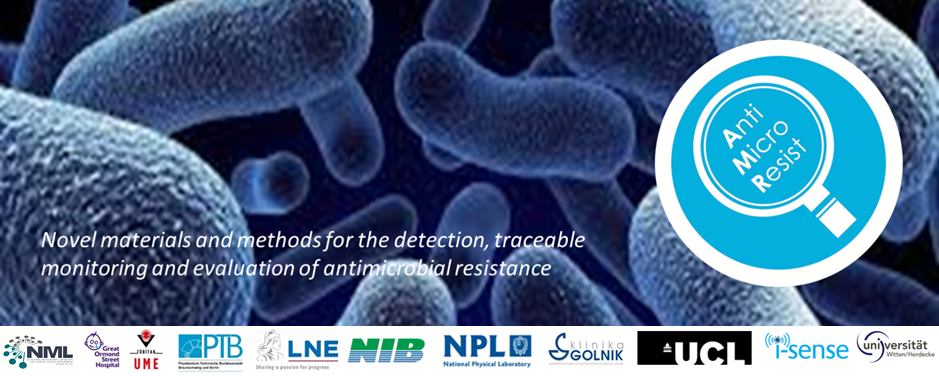EMPIR AntiMicroResist

Within the next 35 years, antimicrobial resistance is estimated to account for a staggering 45% of global deaths, potentially as many as 1 every 3 seconds.
The European-funded (EMPIR) project AntiMicroResist aims to apply innovative measurement (metrology) concepts to underpin diagnostic analysis and support standardisation of antimicrobial resistance testing through the development of reference methods and materials.
This will help inform treatment choice and will deliver a step change in how microbial resistance is evaluated, treated and managed in the future.
AntiMicroResist will work with hospitals and key stakeholder charities to develop the measurement science needed to manage antimicrobial resistance.
The background
In 2014 a World Health Organisation (WHO) report revealed that antimicrobial resistance (AMR) is becoming an increasingly serious threat to global public health, putting at risk our ability to treat common infections and making the threat of a post-antibiotic era a very real possibility for the 21st century. A coordinated global effort is required to effectively combat this threat.
The recently released (2016) final report of the UK government-commissioned Review on Antimicrobial Resistance outlines recommendations to combat the high economic and health costs if AMR is allowed to increase. This has been predicted to be associated with a cumulative loss of global economic output of US$100 trillion to 2050, which compounded with a substantial increase in infant and child mortality may also put an end to key advances in medical areas such as surgery and cancer treatment.
Current European activities lack rudimentary metrological considerations more commonly applied to other areas of clinical chemistry. AntiMicroResist aims to support the standardisation of comparable and traceable measurements the fight to reduce AMR.
The consortium
The consortium delivering AntiMicroResist brings together 11 partners from 5 countries across the EC.
It consists of:
- six National Measurements Institutes/Designated Institutes (LGC, LNE, NIB, NPL, PTB, TUBITAK)
- one university (UCL)
- three hospitals (GOSH, UCG, UWH)
- one stakeholder charity (BSAC).


